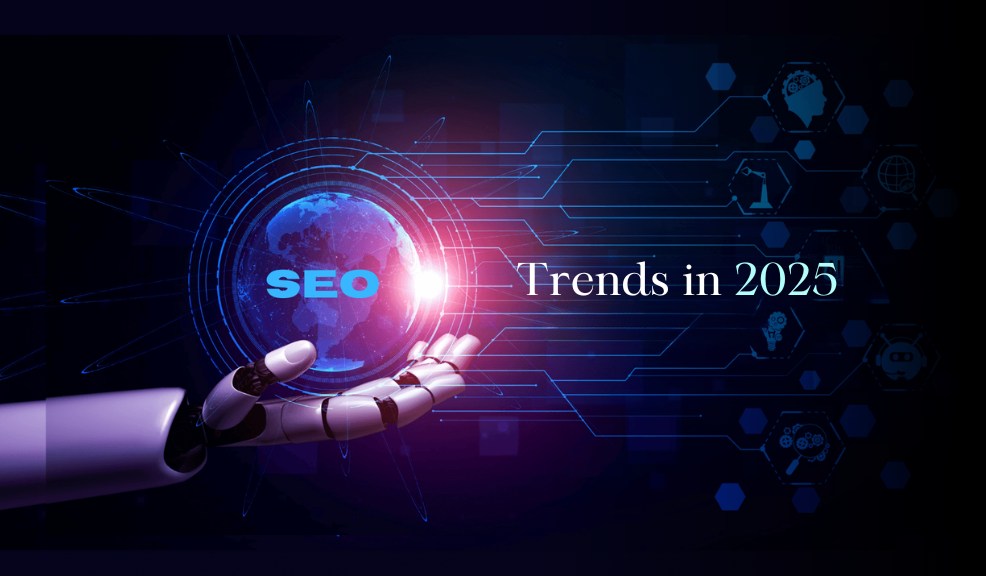The world of search engine optimization (SEO) continues to evolve rapidly, and 2025 is set to bring significant changes. With advancements in artificial intelligence (AI), voice search, and Google’s ever-changing algorithms, businesses must stay updated with the latest SEO trends to maintain and improve their search rankings. In this article, we will explore the key SEO trends for 2025 and provide actionable insights to optimize your website effectively.
AI Integration in Search Results
AI has become a transformative force in search engine algorithms, with Google’s AI Overviews leading the charge. Introduced in May 2024, AI Overviews provide users with AI-generated summaries at the top of search engine results pages (SERPs), offering concise answers without necessitating clicks through to websites. By November 2024, AI Overviews appeared in nearly 20% of searches, a significant increase from 7% in June of the same year.
Implications for SEO:
Optimizing for AI Overviews: To remain visible, content creators must adapt by structuring content that aligns with AI Overview criteria, ensuring their information is featured in these summaries.
Rise of Answer Engines
The emergence of answer engines, powered by large language models (LLMs) like ChatGPT and Perplexity AI, is reshaping how users seek information. These platforms offer conversational interactions and direct answers, reducing reliance on traditional search engines. Notably, in October 2024, Google’s market share dipped below 90% for the first time since 2015, indicating a shift towards alternative information sources.
Implications for SEO:
Diversifying Content Distribution: Businesses should explore optimizing content for answer engines and other platforms to maintain visibility across various channels.
Emphasis on User-Generated Content
User-generated content (UGC) is gaining prominence in search rankings. Platforms like Reddit and Quora, which host authentic user discussions, are being prioritized by search engines for their genuine insights and firsthand experiences. This trend underscores the value of real human perspectives in an era increasingly dominated by AI-generated content.
Implications for SEO:
Encouraging Community Engagement: Brands should foster and highlight UGC, such as customer reviews and testimonials, to enhance credibility and search visibility.
Integration of AI Tools in SEO Workflows
AI-powered tools are revolutionizing SEO practices by automating tasks like keyword research, content creation, and performance analysis. While these tools offer efficiency, it’s imperative to balance automation with human oversight to maintain content quality and authenticity.
Implications for SEO:
Leveraging AI Responsibly: Utilize AI tools to streamline processes but ensure that content remains original and resonates with human audiences.
Prioritization of E-E-A-T and Brand Signals
Expertise, Experience, Authoritativeness, and Trustworthiness (E-E-A-T) continue to be critical factors in Google’s assessment of content quality. Establishing strong brand signals and demonstrating subject matter expertise are paramount for achieving favorable rankings.
Implications for SEO:
Building Authority: Focus on creating high-quality, well-researched content and securing authoritative backlinks to reinforce credibility.
Shift to User-Centric SEO
The days of keyword stuffing and generic content are definitely over. In 2025, successful SEO strategies prioritize the entire user experience, treating each interaction as a holistic journey rather than a transactional moment.
Marketers must now think like user experience designers, mapping intricate customer journeys and creating content that serves multiple touchpoints. This means developing multi-format content that can be consumed across different platforms and devices, ensuring a seamless and engaging experience for users.
Implications for SEO:
Focusing on User Intent: Develop content strategies centered around understanding and fulfilling the needs and queries of the target audience.
Decline of Traditional SEO Notions
The assertion that “SEO is dead” is being challenged as the field undergoes transformation rather than obsolescence. Adapting to new technologies and user behaviors is essential for continued success in SEO.
Implications for SEO:
Embracing Change: Stay informed about emerging trends and be willing to pivot strategies to align with the evolving digital landscape
The SEO landscape in 2025 is characterized by rapid technological advancements and shifting user expectations. By understanding and adapting to these trends—such as AI integration, the rise of answer engines, and the emphasis on user-centric content—businesses can position themselves for sustained online visibility and success. Continuous learning and flexibility will be key in navigating the ever-changing realm of SEO.
